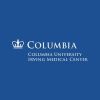Everything You Need to Know About Heart Disease
- What is Heart Disease?
- Types of Heart Disease
- Common Symptoms of Heart Disease
- Risk Factors for Heart Disease
- Personal Story: Overcoming Heart Disease
- Prevention and Treatment of Heart Disease
Heart disease is a term used to describe a range of conditions that affect the heart. It can be overwhelming when you first hear a diagnosis, but understanding the various types of heart disease, their symptoms, and how to manage them can make a world of difference. In this article, I will walk you through what heart disease is, the common types, how to identify symptoms, risk factors, and what steps you can take to reduce your risk. I’ll also share a personal story to help you relate better to this complex topic.

What is Heart Disease?
Heart disease refers to any disorder that affects the heart’s function. The most common type is coronary artery disease, which involves the narrowing of the arteries that supply blood to the heart. This reduces blood flow and can lead to heart attacks. However, heart disease also includes conditions such as heart failure, arrhythmia (irregular heartbeat), and congenital heart defects. It's crucial to understand that heart disease is not just one condition but a group of related diseases that require different treatments and management strategies.
The most important thing to understand is that heart disease is preventable and manageable with the right lifestyle choices, medications, and regular check-ups. By recognizing symptoms early and taking preventative steps, individuals can greatly reduce their risk of severe complications like heart attacks, strokes, or heart failure.
Atlanta Heart Specialists
atlanta heart specialists
4375 Johns Creek Pkwy #350, Suwanee, GA 30024, USA

Types of Heart Disease
There are several types of heart disease, each with its own causes, symptoms, and treatment approaches. Let’s explore a few of the most common types:
1. Coronary Artery Disease
This is the most common type of heart disease and involves the buildup of fatty deposits in the arteries that supply blood to the heart. This narrowing of the arteries reduces blood flow and can lead to chest pain or even heart attacks.
2. Heart Failure
Heart failure happens when the heart is no longer able to pump blood efficiently, which can lead to fluid buildup in the body and a variety of symptoms such as shortness of breath, fatigue, and swelling in the legs or abdomen.
3. Arrhythmia
Arrhythmia refers to irregular heartbeats that may feel like your heart is racing, fluttering, or skipping beats. Some arrhythmias are harmless, while others can be dangerous, leading to strokes or heart failure if left untreated.
4. Heart Valve Disease
This occurs when the valves in the heart, which help regulate blood flow, don’t function properly. Valve problems can lead to blood flow being disrupted, and may result in symptoms such as shortness of breath and fatigue.
5. Congenital Heart Defects
These are heart defects that are present at birth. Some congenital heart defects are mild and may not cause symptoms, while others can be severe and require surgery or other treatments.
Common Symptoms of Heart Disease
Heart disease often doesn’t have obvious symptoms, especially in the early stages. But as the condition worsens, there are several warning signs you should be aware of:
1. Chest Pain or Discomfort
One of the most common symptoms of heart disease is chest pain, which may feel like pressure, tightness, or fullness. It can occur during physical activity or even when resting. If you experience chest pain, it’s important to seek medical help immediately.
2. Shortness of Breath
If you find yourself getting easily winded or short of breath, it could be a sign that your heart is not pumping efficiently. This symptom is often associated with heart failure or arrhythmia.
3. Fatigue
Unexplained fatigue can be a symptom of heart disease. If you’re feeling more tired than usual, it might be your body’s way of signaling that something is wrong with your heart.
4. Swelling
Swelling in the legs, ankles, or abdomen is a common symptom of heart failure. This occurs when the heart is unable to pump blood effectively, causing fluid to accumulate in the body.
Risk Factors for Heart Disease
Understanding the risk factors for heart disease can help you take proactive steps to reduce your chances of developing it. Here are some key risk factors:
1. High Blood Pressure
Chronic high blood pressure puts extra strain on your heart, which can increase your risk of developing heart disease. It’s important to monitor your blood pressure regularly and take steps to keep it within a healthy range.
2. High Cholesterol
Too much cholesterol in the blood can lead to plaque buildup in the arteries, increasing your risk for coronary artery disease and heart attacks.
3. Diabetes
People with diabetes are at higher risk for heart disease, as high blood sugar can damage blood vessels and lead to conditions like coronary artery disease.
4. Smoking and Alcohol Use
Both smoking and excessive alcohol consumption are major contributors to heart disease. Quitting smoking and reducing alcohol intake can significantly lower your risk.
Personal Story: Overcoming Heart Disease
When I was diagnosed with high cholesterol and high blood pressure, I didn’t realize the severity of the situation. It wasn’t until I experienced a mild heart attack that I understood just how serious heart disease could be. Fortunately, with the support of my doctor, I changed my diet, started exercising regularly, and took prescribed medications. Over time, my heart health improved, and I was able to avoid further complications. This personal experience taught me the importance of taking heart health seriously, even when you don’t feel sick.
Prevention and Treatment of Heart Disease
While heart disease can seem daunting, it’s possible to manage and even prevent many of the conditions that contribute to it. Here are some steps you can take to protect your heart:
1. Healthy Diet
A heart-healthy diet rich in fruits, vegetables, whole grains, and lean proteins can help reduce your cholesterol levels and keep your blood pressure in check. Avoid processed foods and limit your intake of unhealthy fats and sugars.
2. Regular Exercise
Regular physical activity is crucial for maintaining heart health. It helps to lower blood pressure, improve circulation, and strengthen the heart muscle. Aim for at least 150 minutes of moderate-intensity exercise per week.
3. Medications
If you have risk factors for heart disease or have already been diagnosed, your doctor may prescribe medications to help control blood pressure, cholesterol, or other aspects of heart health. It’s essential to follow your doctor’s advice and take medications as prescribed.
By understanding heart disease and taking proactive steps to prevent or manage it, you can significantly improve your chances of living a long and healthy life. If you’re interested in learning more or want help with heart disease management, consider visiting our website for expert advice, resources, and heart health supplements to support your journey.





















Deborah Heart and Lung Center
deborah heart and lung center
200 Trenton Rd, Browns Mills, NJ 08015, USA